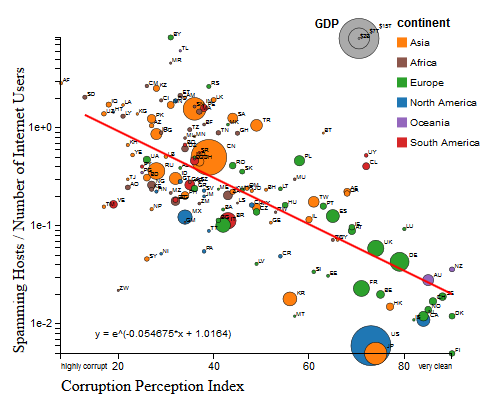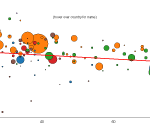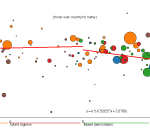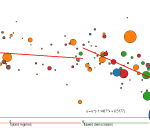Correlation between country governance regimes and the reputation of their Internet (IP) address allocations
April 15th, 2013 by Bradley Huffaker[While getting our feet wet with D3 (what a wonderful tool!), we finally tried this analysis tidbit that’s been on our list for a while.]
We recently analyzed the reputation of a country’s Internet (IPv4) addresses by examining the number of blacklisted IPv4 addresses that geolocate to a given country. We compared this indicator with two qualitative measures of each country’s governance. We hypothesized that countries with more transparent, democratic governmental institutions would harbor a smaller fraction of misbehaving (blacklisted) hosts. The available data confirms this hypothesis. A similar correlation exists between perceived corruption and fraction of blacklisted IP addresses.
For more details of data sources and analysis, see:
http://www.caida.org/research/policy/country-level-ip-reputation/

|
||
 |
 |
 |
| x:Corruption Perceptions Index y:IP population % |
x:Democracy Index y:IP population % |
x:Democracy Index y:IP infection % |
May 24th, 2013 at 6:46 pm
Awesome graph Bradley! Some colleagues and I did a similar analysis for WEIS last year using many of the same independent variables and participation in crowdsourced labor markets as the dependent variable[1]. We found correlations between less ecrime participation and greater governmental transparency, less corruption, and more consistent rule of law. Not too terribly surprising, but I’d be very interested to see more researchers apply this macro level analysis to cybercrime.
1. http://www.cs.uic.edu/~ckanich/papers/weis.ecrime.pdf